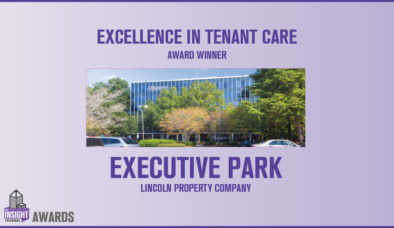The Key to Continual Learning: BOMA Membership
Many adults don’t picture sitting in class after they have a degree, but those who are successful embrace lifelong learning. Continual education is a pillar of BOMA’s values and mission as an organization. The CRE industry is ever-changing and ever-growing and property managers and building engineers must be open to gaining new skills. Furthering the careers of young engineers and veterans alike means better employees, well-run buildings and a secure future for commercial real estate.
Creating Confidence
When Adam Hartley, chief building engineer for the Dewberry group, began his career in commercial real estate but was facing a steep learning curve. “Finding BOMA, and specifically the BTO, put me on track for success right away in terms of educational opportunities and connections with peers in the industry,” Hartley said. “The SMT/SMA courses matched my daily responsibilities and gave me the confidence to take the lead at my properties.” Foundational learning is just the beginning of the educational track but many courses are designed to build upon the skills someone is bringing in.
Getting Ahead
Trent Patterson, corporate facilities director for Haverty Furniture Companies, was able to fast track his career, as a young building engineer, by taking advantage of his company offering to pay for certification courses. He was grateful to work with a company that valued education and chose to invest in him. “The experience portion is gained while at work, but the education portion must be pursued through various opportunities,” Patterson said. “The technology, equipment and systems are changing so fast that we must stay ahead of the learning curve.” Keeping up with emerging technologies means remaining an asset. A building engineer must have a learning mindset if he or she wants to become chief engineer or a facilities manager. “I recall my first day as a building engineer and all the goals I had in front of me” Patterson said. “Education was a major factor in achieving those goals. I still create goals each day as a facilities manager which motivate me to work harder and become a better professional tomorrow than I am today.”
Building Value
Gaining new designations and going through certificate programs adds value to the member, their employer and their building. The educational component doesn’t just make people better, it makes companies and buildings better. Patrick Freeman, the executive vice president of property management at Brand Properties, is a firm believer in continual education. “A good employer recognizes the more they can sharpen the tools in their shed, if you will, the better their assets will perform,” Freeman said. “Their employees will be able to do things faster, more efficiently, more in keeping with current legislation and more in keeping with best practices.” Freeman, who completed his master’s thesis at Georgia Institute of Technology on the value of learning in CRE, said that people need to pay attention to their inherent skills. “If you have an inherent skill set, a set of traits that are going to make you naturally successful and get you 80 percent of the way there, you’re going to benefit from education to continue to sharpen that tool.” If CRE professionals have a willingness to learn and the industry has a driving desire for innovation, there will be a path to support that person. “I am living proof that hard work and education provide tremendous opportunities for growth within our industry,” Patterson said.









